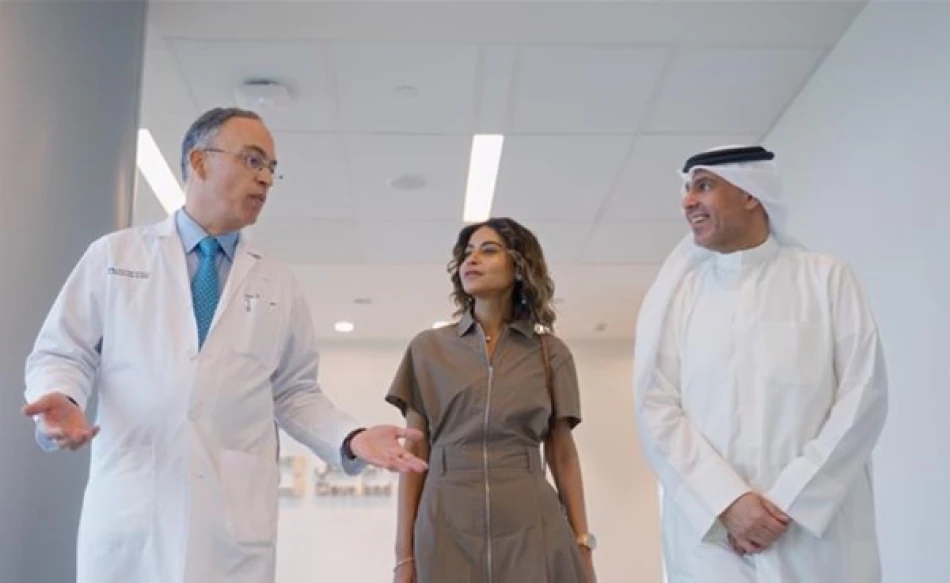
Emirati-Cleveland Clinic Saves Kuwaiti Woman's Life with Groundbreaking Dual Liver and Kidney Transplant
UAE-Kuwait Medical Partnership Saves Lives Through Cross-Border Organ Sharing Program
A groundbreaking medical collaboration between the UAE and Kuwait has successfully saved the life of a Kuwaiti mother of three through a complex dual liver-kidney transplant at Cleveland Clinic Abu Dhabi. This case highlights how regional healthcare partnerships are transforming organ transplantation outcomes across the Gulf, with over 180 patients already benefiting from the cross-border coordination system.
Revolutionary Cross-Border Organ Sharing
The patient, identified as Nashami, had been suffering from advanced liver disease and kidney failure when she became eligible for the joint UAE-Kuwait organ sharing program. This partnership allows patients from both countries to access a combined donor pool, significantly reducing waiting times and improving survival chances.
The program represents a significant evolution in Gulf healthcare cooperation, moving beyond traditional medical tourism toward integrated regional health systems. Unlike isolated national programs, this cross-border approach doubles the potential donor pool, addressing one of the most critical challenges in organ transplantation: timing.
Complex Surgical Precision
The surgical team at Cleveland Clinic Abu Dhabi performed the intricate dual transplant in sequence, beginning with the liver transplant followed immediately by the kidney transplant. Dr. Baraa Abdeljawad, a consultant in critical care at the Integrated Hospital Care Institute, emphasized that timing remains the cornerstone of successful organ transplantation.
The hospital's specialized infrastructure allows for minimal time between organ procurement and transplantation, a crucial factor that preserves organ function and dramatically improves patient recovery rates. The surgical team implemented advanced techniques to minimize blood loss, with both procedures concluding successfully.
Regional Healthcare Integration Model
This UAE-Kuwait medical partnership demonstrates how Gulf states are leveraging their geographic proximity and shared healthcare challenges to create more effective treatment options. The program involves coordinated efforts between embassies, airports, and hospitals, creating a seamless system for emergency medical transfers.
Since its launch, the program has saved more than 180 lives in the UAE alone, suggesting significant potential for expansion across other Gulf Cooperation Council nations. This model could serve as a blueprint for similar initiatives in regions facing organ shortage crises.
Implications for Regional Medical Tourism
The success of this program positions the UAE as a regional medical hub while strengthening Kuwait's healthcare capabilities through partnership rather than competition. This collaborative approach contrasts with traditional medical tourism models where patients simply travel for treatment, instead creating integrated care networks.
The multidisciplinary team's comprehensive post-operative care, supported by dedicated international patient services, resulted in exceptional recovery outcomes for Nashami. This holistic approach reflects the program's commitment to personalized medical care designed to optimize health outcomes for each patient.
Future of Gulf Healthcare Cooperation
This successful case demonstrates the potential for expanded regional healthcare integration. As Gulf nations continue investing heavily in medical infrastructure and expertise, cross-border partnerships like this could become the standard for complex medical procedures requiring specialized resources.
The program's emphasis on systematic coordination between multiple institutions suggests a mature approach to regional healthcare planning, potentially influencing how other medical specialties develop collaborative frameworks across national boundaries.
Most Viewed News

 Layla Al Mansoori
Layla Al Mansoori






